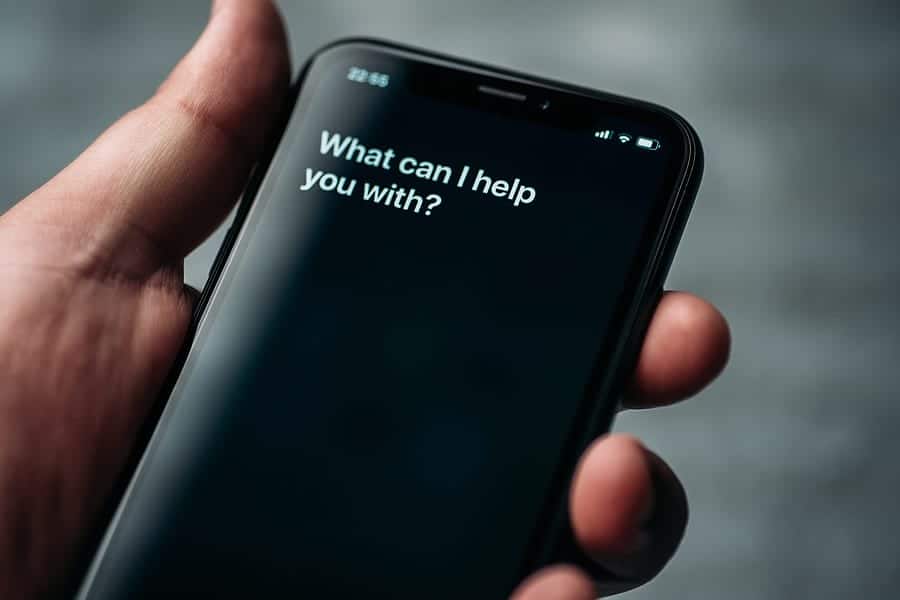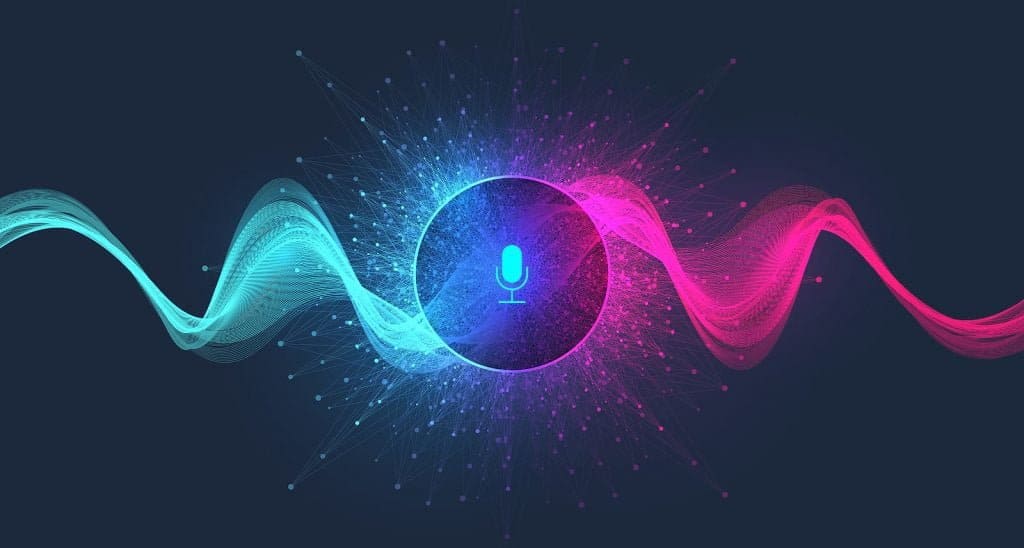Apple’s Siri is one of a group of virtual assistants capable of performing a wide range of everyday tasks and interacting with users in a human-sounding voice and natural speech patterns that you wouldn’t normally expect from a machine or computer system. But is Siri an AI? Or in other words, is Siri an example of artificial intelligence?
Table of Contents
ToggleThat’s what we’ll be exploring in this article by taking a look at some of the history, underlying technology, and functionality of the Siri voice assistant. We’ll begin by defining terms.
What Is Artificial Intelligence?
Artificial intelligence or AI is a broad term for a branch of computer science that brings together various disciplines, with the aim of developing systems and machines that can perform tasks previously achievable only through human reasoning, perception, or learning. Many AI developers’ long-term goal is the creation of machines that can match or exceed human capabilities and behave autonomously to a certain extent — a condition known as strong AI or artificial general intelligence (AGI). This level of development could take decades to achieve.
For now, artificial intelligence is weak or narrow, consisting of specialist systems that can perform a single task or a limited range of tasks exceptionally well. This currently includes applications like pattern recognition, intelligent search and recommendations, and the ability to interpret text and voice communications.
What is Siri? Is Siri AI?
Siri is an integrated, voice-controlled personal assistant available for users of the Apple computing and telecommunications platform. Siri has been designed to offer a seamless way of interacting with the full range of Apple devices and has access to all the devices’ built-in applications. You can ask Siri questions, tell her (or him, depending on your configuration preferences) to show you something, or issue commands for Siri to execute on your behalf.
Siri offers an interactive, hands-free medium for organizing and performing a wide range of activities, and is described in promotional literature as an AI assistant.
But, is Siri a form of artificial intelligence, or something else entirely? To answer that, we must delve deeper into the origins of Siri and its underlying technologies.
When was Siri Invented?
Though it’s now synonymous with the platform, Siri wasn’t actually created by Apple. Though the company had a hand in its commercial development, Siri technology and Siri, Inc. were engineered and co-founded by Adam Cheyer, Dag Kittlaus, and Tom Gruber of Stanford Research Institute.
Prior to the World Wide Web (WWW) launch in 1995, Adam Cheyer built a prototype PC tablet that users could communicate with using verbal commands and handwriting recognition. Over the course of the next 20 years, the trio built almost 50 progressive versions of this early Siri technology.
The launch of the first iPhone in 2007 inspired the team to accelerate their work and make the technology universally available, and in February 2010, Siri launched as an app in the Apple store. The name was suggested by the Norwegian Dag Kittlaus, in whose native language Siri means “beautiful woman who guides you to victory.”
A couple of weeks after the launch, Steve Jobs announced that he wanted to buy the Siri technology and Siri, Inc., And in April 2010, the trio sold Siri to Apple for more than $200 million.
What Can Siri Do?
The Siri voice assistant first appeared on the iPhone 4S but is now also available on the iPad, iPod touch, Apple Watch, AirPods, HomePod, and the desktop Mac (macOS Sierra and later).
You can ask Siri to perform a task simply by saying “Hey Siri” to your iPhone, AirPods, connected Bluetooth headsets, Apple Watch, or HomePod. If you have a Touch ID iPhone (iPhone 6S or later), you can hold down the Home button, then say what you want. Users of Face ID iPhones (iPhone X and newer) can hold down the side power/wake button. On the Apple Watch, holding down the Digital Crown or saying “Hey Siri” within a few seconds of raising your wrist will initiate the system.

Siri has a considerable selection of commands and questions that she’ll respond to, some of which are:
- Making calls or Initiating FaceTime
- Sending or reading texts
- Sending messages on third-party messaging apps
- Setting alarms and timers
- Setting reminders and checking your calendar
- Splitting a check or calculating a tip
- Playing music (You can choose specific songs, artists, genres, or playlists)
- Identifying songs from information like the artist and release date
- Controlling HomeKit products
- Playing TV shows and movies, and answering questions about them
- Performing translations and conversions
- Solving math equations
- Providing sports scores
- Checking stocks
- Making recommendations based on your activities in other Apple apps
- You can use the Settings, Siri menu to change Siri’s gender and language
Siri is also being updated to provide services and information during the coronavirus pandemic. iPhone users who ask Siri about COVID-19 can now complete a questionnaire about their symptoms and potential exposure to the virus, get advice from the Centers for Disease Control (CDC) and the US Public Health Service, a department of the Department of Health and Human Services.
How Does Siri Do All This?
Siri consists of three main components: a conversational interface, personal context awareness, and service delegation.
The conversational interface is the part of Siri that’s able to interpret voice input from the user and generate understandable voice output from the application. This component is based on Natural Language Processing (NLP), a branch of AI that develops systems capable of understanding and responding to humans’ direct communication.
Language data statistical analysis and machine learning power the personal context awareness portion of Siri. This enables the system to decipher the meaning of what you actually say to it. On this basis, Siri can predict your intention from keywords that you use and your general habits and use of language. Siri can speak and understand English (Australia, Canada, India, New Zealand, Singapore, UK, US), Spanish, French, German, Italian, Japanese, Korean, Mandarin, Norwegian, Cantonese, Swedish, Danish, Dutch, Russian, Turkish, Thai, and Portuguese.
The service delegation system gives Siri unlimited access to all of the built-in apps on your device and their inner workings. This enables Siri to perform task-specific commands.
Is Siri AI?
Siri relies on natural language generation, natural language processing, and machine learning in order to effectively operate and improve its performance over time. All of these are forms of artificial intelligence, but strictly speaking, Siri is a system that uses artificial intelligence, rather than being pure AI in itself.

When you ask a question or issue a command to Siri, the microphone on your device records your words, and sends this recording via the internet to the cloud for processing. A cloud-based service will review the recording and interpret your request. Then, the system will send a relevant response back to your device. But if you don’t have internet service, Siri won’t be able to work.
Summary:
Is Siri AI?
Siri consists of three main components: a conversational interface, personal context awareness, and service delegation. The conversational interface is based on Natural Language Processing (NLP), a branch of AI. Language data statistical analysis and machine learning power the personal context awareness portion of Siri. Siri can predict your intention from keywords that you use and your general habits and use of language. The service delegation system gives Siri unlimited access to all of the built-in apps on your device and their inner workings. This enables Siri to perform task-specific commands.






